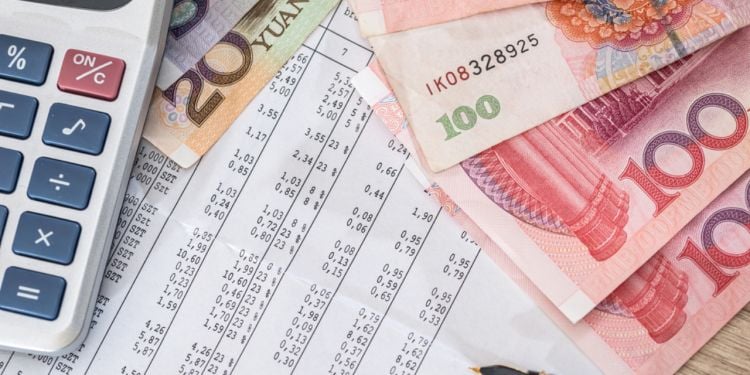
A lot of professionals and investors come to China in search of new opportunities. After the pandemic, traveling to China has become more complicated. Plus, the newly announced tax policies will have a substantial effect on expats' earning potential in the country. Here's what you need to know about China's tax system.
Before you officially start working in China, your hiring company, whether international or local, should explain the way Individual Income Tax is calculated and paid in China. However, it's always good to have a general idea of taxation principles prior to your arrival.
What are the types of taxes in China?
There are several tax categories in China and 18 different tax types. However, when it comes to taxes that are applicable to expats and foreign investment enterprises, you should take note of the following:
Income taxes in China
There are three main income taxes in China:
- Individual income tax (IIT) is charged at a progressive rate from 3% to 45%.
- Withholding income tax on payments to non-residents is charged on interest, rental, royalties and other passive income at the rate of 10%.
- Corporate income tax (CIT) is charged to companies at the rate of 25%. However, it can also be reduced to 15% for certain enterprises working in industries encouraged by the Chinese government.
Tax on transactions in China
Transactional taxes in China include:
- Value Added Tax (VAT) is applied to the sale of goods (except for real estate). VAT is charged at the standard rate of 17%, with certain goods that are considered “basic necessities” taxed at the rate of 13%.
- Consumption tax is applied to 14 product categories, including tobacco products, alcoholic products, cosmetics, jewelry, vehicles, gasoline products, yachts, luxury watches, chopsticks, and more. The full tax rate is based on the sales volume.
- Business tax is applied to the provision of services (except for processing and repair services), the transfer of intangible properties, and the sale of real estate in China. The tax rate ranges from 3% to 20%.
Tax on specific objectives in China
This category includes land appreciation tax, which is applied to the gains from real property transactions. The tax is applied at a progressive rate ranging from 30% to 60%.
Tax on resources in China
Resource tax is levied on natural resources. The tax rates are determined by the Ministry of Finance and determined based on volume. Taxable resources include crude oil, natural gas, coal, raw non-metallic minerals, raw ferrous metals, nonferrous metallic minerals and salt.
Tax on property in China
Real estate tax is levied on property owners. The tax is applied at the rate of 1.2% of the original property value or 12% of the rental value.
Tax on consumer behavior in China
This tax category includes three main taxes.
- Vehicle and vessel tax is levied at a fixed rate annually on all vehicle and vessel owners in China.
- Motor vehicle acquisition tax is levied at the rate of 10% on any purchase or import of a car, motorcycle, tram, trailer, electric bus, cart, etc.
- Stamp tax is applied to enterprises or individuals who receive specific documents in China. The tax is levied at the rate of 0.005% to 0.1%.
Customs tax in China
Customs duties are levied on goods imported into China. The tax rate is determined based on the cost, insurance and freight value, as well as the country of origin of imported goods.
Tax imposed by the Finance Department
An example of such tax is deed tax, which is levied on the transferees or assignees on the purchase/gift/exchange of land ownership. The tax rates vary from 3% to 5%.
Do you have to pay income tax as an expat in China?
The two main criteria determine how much tax you need to pay: the duration of your stay in China and the source of your income. With regard to this, three taxation rules are in play.
If you've stayed in China for under 90 days in a tax year, you will only need to pay tax for work that has been done for a local company or individual during your stay in China. For countries with tax treaties with China, this period is extended to 183 days
If you've stayed in China for less than a year during the tax year, you will be required to pay tax on all income earned in China, whether your income originated locally or from abroad. If you've worked in China for more than a year but less than five years, all income from Chinese or foreign employers for the work you've performed in China is taxable, as well as the income you've received from a Chinese employer while temporarily working abroad.
If you've stayed in China for more than five years consecutively, the much-feared by expats 5-year rule comes into play, making your worldwide income taxable in China. This means that all the income you earn from that moment on, whether in China or abroad and including profits from investments and sales of shares, will need to be accounted for in China. To break the rule or 'reset the clock', expats need to be absent from China for more than 30 consecutive days in a calendar year or 90 days cumulative in a calendar year.
Important:
To be a legal resident in China and stay in the country for the long term, you will need to apply for residency. To do that, you will need to be legally employed in China or have a business in the country, thus employing yourself. To obtain residency in China, there are several conditions that you will need to fulfill and a number of documents you will need to prepare. Read our article on professional visas in China to get a better idea of what options you have for obtaining residency.
What is the individual income tax rate in China?
China uses a seven-tier progressive individual income tax system:
Income | Tax rate |
|---|---|
<36,000 | 3% |
36,000-144,000 | 10% |
144,000-300,000 | 20% |
300,000-420,000 | 25% |
420,000-660,000 | 30% |
660,000-960,000 | 35% |
>960,000 | 45% |
Do expats in China get tax breaks?
If you are legally employed in China, you will enjoy the same income tax rate and thresholds as Chinese nationals.
The national threshold for income tax in China is currently 5,000 yuan (US$740) per month.
Currently, expats living and working in China can benefit from tax-exempt benefits within the following eight categories:
- Rental expenses
- Education expenses for children
- Language training expenses
- Meal expenses
- Laundry expenses
- Relocation expenses
- Business travel expenses
- And travel expenses for going back home
Good to know:
When it comes to home travel expenses, you will only be able to deduct expenses related to traveling back home — a maximum of two trips per year.
If you want to claim any of the above expenses as your deductibles, you will need to provide proof. In China, the proof is usually collected in the form of invoices — or “fapiao”. You can ask for fapiao any time you purchase specific goods or services in China. Make sure you do that and keep your fapiao so that you can use them when you claim your deductibles.
Important:
You may see people who sell fapiao/invoice papers on the street or online. Note that purchasing fapiao and using them to claim deductions from your taxable income is considered tax fraud. Tax fraud in China has very serious consequences, from heavy fines and jail time to deportation.
New tax law to come into force in 2023
In 2018, the Chinese Government announced plans to start the process of phasing out tax breaks for expats by 2022. However, because of the pressure from international businesses, the tax breaks were extended for two more years. This means that if you are currently working in China or were hired by a Chinese company in 2022, you will still be able to benefit from the tax deductions we've mentioned above.
But when the new law does go into effect, expats will no longer be able to deduct their expenses from their taxable income. This will make things complicated for a lot of expats in China as it will substantially increase their individual income tax obligations.
The abolition of tax exemptions for foreigners has currently been moved to the end of 2023. If you are currently employed in China or are considering coming to the country for work, make sure to check with your employer about the upcoming changes. You need to be fully aware of how these changes will affect your employment and financial situation in China.
Tax filing dates in China
The tax year in China runs from January 1st through December 31st. Note that China doesn't offer extensions on tax filing, and there will be penalties imposed for filing late.
If you are legally employed in China, your employer will need to file taxes for you on a monthly basis.
Important:
While this article aims to provide the most relevant and up-to-date information, make sure to inquire with the relevant authorities about the latest regulations that may affect your taxes.
If you are eligible for other tax deductions, consult your company's HR professional for more information on individual income tax.
Opening a bank account in China
To receive a salary in China and manage your taxes, you will need a bank account. Opening a bank account in China is not particularly difficult — but it can be a hassle. You will need the following documents:
- Passport
- Valid Chinese visa
- A local phone number
- Work permit or student ID.
Note that the list of documents you will need may vary from one bank to another. Some banks may also require you to provide proof of address.
Important:
Most banks in China will only let you open an account if you have a residence permit in the country. Plus, a lot of banks also require you to have a work-based residence permit. You can only open a bank account in China in person — it's virtually impossible to do this remotely.
Opening a bank account in Hong Kong
In some cases, expats prefer to open a bank account in Hong Kong because of the relaxed tax system. This is often the case when you need to open a company account, receive transfers from abroad or send money to other countries. Opening an account in Hong Kong can be a good solution if, for any reason, you can not open a bank account in China.
Useful link:
We do our best to provide accurate and up to date information. However, if you have noticed any inaccuracies in this article, please let us know in the comments section below.








